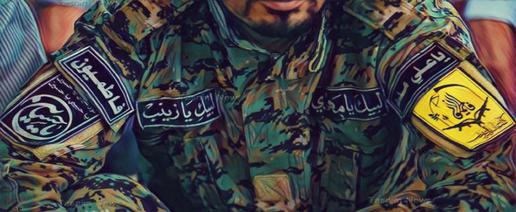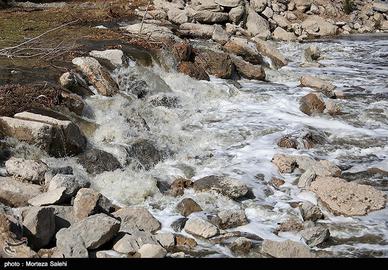When the Islamic State was defeated in Syria, there was no shortage of countries claiming credit for the success, including the United States of America, Russia, Turkey and the Islamic Republic of Iran. The Trump administration called the defeat of the group in Raqqa – ISIS’s capital – a big success in the international battle against terrorism, and the president tweeted, “With the liberation of ISIS's capital and the vast majority of its territory, the end of the ISIS caliphate is in sight.”
On the other hand, General Ghasem Suleimani, the commander of the Revolutionary Guards’ Quds Forces, wrote a letter to Ayatollah Khamenei congratulating him on the success:
“As the representative of the whole of commanders and unknown Mujahideen of the battle and thousands of martyrs and maimed Iranian, Iraqi, Syrian, Lebanese, Afghan, Pakistani defenders of the shrine who sacrificed their life defending the life and honor of the Muslims and sanctities, I would like to congratulate your excellency and the respectful Islamic Iran nation and the oppressed nations of Iraq, Syria and other Muslims in the world for this huge and defining success.”
At the time that General Suleimani was writing this letter, the Fatemiyoun Brigade made up of Afghan fighters had lost over 2,000 men, and over 8,000 others were maimed. But, did the 20,000-strong Fatemiyoun Brigade go to war only for the salaries and connected privileges?
Ali, a senior member of the brigade, agreed to answer some tough questions about their missions.
IranWire: You say you went to Syria to defend Bibi Zainab’s shrine. Is it worth seeing thousands being killed or wounded in defense of a grave?
Ali: In the kaaba in Mecca, too, there is no living creature, so why do we worship? Does...God have a house where people visit annually?
IranWire: I see, so it's worth defending. There are reports that you and other Afghan soldiers were forced to go to Syria. What’s your response to this?
Ali: When I was sent, there was no pressure. Many boys decided not to go to the war after the training. We went to Syria because we wanted to become defenders of the shrine. It’s not true that Fatemiyoun men go to Syria for the salary and privilege [that is] given by the Islamic Republic of Iran. Our fundamental goal is to free the graveyard of Fatimeh Zahra, which is in Saudi Arabia.
IranWire: Many families [of Fatemiyoun soldiers] complain that, because of lack of support and a weak Afghan government response, the Iranians send the fighters to the most dangerous places.
Ali: War is not something that can be dangerous in one place and not dangerous in another. But [the idea that] Iranians intentionally send us to the dangerous regions is not true. Wherever there’s war, there’s danger. The Revolutionary Guards, Hezbollah, Zainaboun, Haidaryoun and Fatemiyoun boys were everywhere. There was a calculation. Of course we were the frontliners. But even places less dangerous, once attacked by [the] enemy...would become dangerous.
IranWire: How old are the majority of Fatemiyoun fighters? The UN reported that there were underage people among the fighters.
Ali: The majority of them were young. We [also] had people who were old and came to fight for the love for Zainab.
IranWire: How did the hierarchy of Fatemiyoun work?
Ali: The leadership was with the Revolutionary Guards. They had everywhere under their control. Iranian battlers were alongside our men. Many Guards men were killed too.
IranWire: Did you witness any casualties?
Ali: Many of our fellow fighters were martyred in front of my eyes. They had passion for Hussein and were martyred.
IranWire: How many?
Ali: Countless people were martyred. We cannot count. Fatemiyoun had many martyrs. They were all martyred with love.
IranWire: Were you taking IS fighters captive?
Ali: We often took IS militants captive. We arrested IS fighters in women’s dress while fleeing Aleppo. We used to gather intelligence from them on their hidden bases. But we used to hand over one out of 20. We sent 19 others to hell. Because our fellows were martyred, we were thinking of revenge rather than taking captives.
IranWire: Can you tell us more about your work conditions and days off?
Ali: Every tour is for three months. When the period came to [an] end, they used to [ask] if we wanted to extend or return to Iran. It was not like being allowed to have only 10 or 20 days. You could go on leave for six months or one year. Iran used to pay your salary.
IranWire: How much?
Ali: The hierarchy in Fatemiyoun is in terms of cadre and non-cadre. There’s no one commander. Everyone gets the same salary. It was initially 1.5 million [US$245 at the time of translation], but recently it’s [been] three million toman.
IranWire: What assistance is given to the families of the victims?
Ali: The same resources that are given to Iranian victims’ families are provided to them. I know there are complaints [about] lack of cooperation from the Iranians. But as far as I know from the families of our fellow combatants, they are entitled [to] good resources. House, residence, monthly salary and insurance are provided. They pay the 1.5 million toman to Afghan martyr families like [they do for] the Iranians. Of course we don’t know how long it will last, but that’s the current policy.
IranWire: How was your medical support and food supply during the war?
Ali: In Damascus there was [a] doctor. There was [a] doctor [at] the front line too. We were in a military area and when you go to war you must not have high expectations. The boys did not aim [for] welfare, their aim was to stop [the spread of ] Wahhabism.
IranWire: If you are so anti-Wahhabi and ISIS, why are you not fighting ISIS in Afghanistan?
Ali: Many Afghans criticize why we are not fighting ISIS inside Afghanistan. But IS lives in the [Afghan] presidential palace. Shall we fight against it? We should fight those in the palace. ISIS is inside the palace. The US supports ISiS.
IranWire: It’s a serious allegation. What evidence do you have to accuse the Afghan government of IS support?
Ali: The evidence is that when the national army is surrounded by ISIS, no assistance is provided. Is [the president of Afghanistan] Ashraf Ghani’s son’s blood more costly than Afghan National Army soldiers’ blood? Why is he not helping? The reason is that he supports ISIS and [the] Taliban. The Afghan soldiers [do not] have...funds and capabilities. If the Afghan government cannot provide salaries and provisions, then why is it recruiting?
IranWire: How different is the way the Iranians handle victim’s families when compared to that of the Afghans?
Ali: From the earth to the sky. When a soldier is killed here, they put Afs 100,000 (US$1370) on his coffin and hand it to the family. No name, no prestige. If you want to prepare a Martyr Card to receive his salary, you need to pay a bribe of Afs 200,000 (US$2,740). Fatemiyoun families are not like that. The salary starts automatically.
IranWire: What is the Fatemiyoun Brigade’s endgame?
Ali: Fatemiyoun’s aim was to defend the two holy shrines. It did not allow ISIS [to] ruin the shrines of Bibi Zainab, the granddaughter of the prophet, and Bibi Ruqayya. If the filthy Wahhabis stand again to misbehave against the Shia innocents, Fatemiyoun will stand against them. If Saudi Arabia does not allow for the shrine of Hazrat Zahra, the angel of the two worlds, we will stand against Saudi Arabia too.
IranWire: Many people actually see you as a threat to Afghanistan. What do you say to that?
Ali: Fatemiyoun poses no threat to Afghanistan. What type of threat do I pose to Afghanistan, given that I [have] gone and returned? There’s no political risk for Afghanistan. Love for [one’s] homeland is obligatory. If the interests of Afghanistan are in danger, we will stand against Iran too.
visit the accountability section
In this section of Iran Wire, you can contact the officials and launch your campaign for various problems

























comments